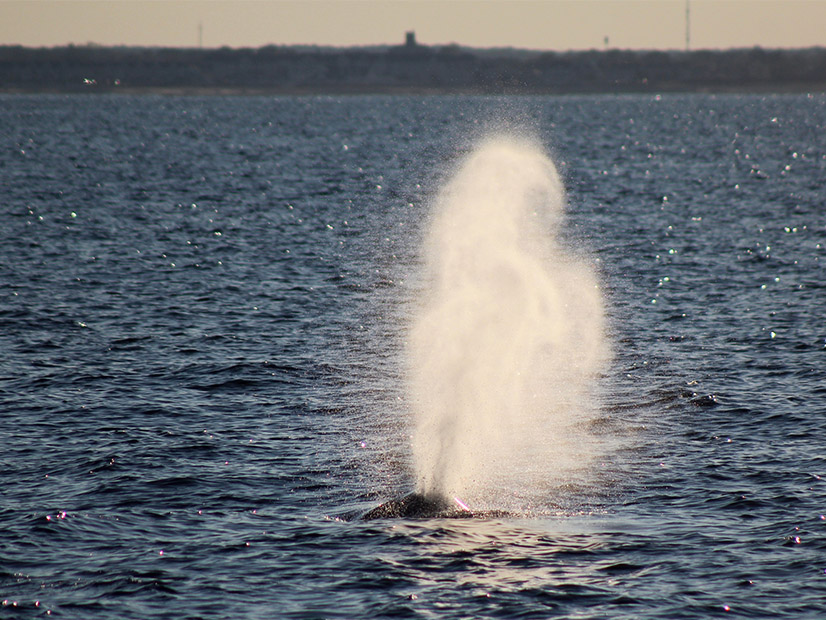
A marine acoustic study underway in the Empire Wind project lease area will be extended through 2028.
The study by Empire Wind and the Wildlife Conservation Society (WCS) is monitoring large whales in the New York Bight and is expected to yield data that will aid in protection of wildlife before, during and after construction.
The offshore wind farm will be built across 80,000 acres 15 to 30 miles south of Long Island and will generate 2.1 GW.
Two moored acoustic monitoring buoys have already compiled more than 2,000 days of monitoring data and detected more than 18,000 sounds from fin, humpback, sei and North Atlantic right whales. The most frequent sound has been a low-frequency song note produced by fin whales. Detections have tended to peak in early winter.
The partners on the project say the acoustic data, combined with sighting data from aircraft and surface vessels, are providing important baseline information on whale activity in and near the Empire Wind lease area. This will guide efforts to minimize the project’s impacts on them.
Empire Wind is a joint venture of Equinor (NYSE:EQNR) and bp (NYSE:BP). WCS is working with the Woods Hole Oceanographic Institution, which invented and operates the acoustic buoys. WCS began the monitoring in 2016, and Equinor began supporting it in 2019.
“As a new industry, it is crucial that we establish best-in-class practices throughout the development phase of our projects from the start,” Siri Espedal Kindem, president of Equinor Wind US, said in a news release Wednesday announcing extension of the program.
“The data from this acoustic monitoring and our analyses clearly demonstrate that several large whale species are seasonally present, and some for extended periods of time in the New York Bight,” said Howard Rosenbaum, the project principal investigator and director of WCS’ Ocean Giants Program.
“We applaud Equinor and the Wildlife Conservation Society for expanding their partnership and ongoing commitment to environmental stewardship and understanding marine life — setting a strong example for how strategic collaboration can mitigate potential risks and support responsible project development,” said Doreen Harris, president and CEO of the New York State Energy Research and Development Authority.



